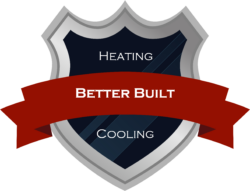How to Improve Your Indoor Air Quality

As a young family who suffers from allergies and is interested in clean indoor air, there are several steps you can take to improve the air quality in your home or office environment. Here are some suggestions.
- Regular cleaning: Keep your living or working space clean by dusting, vacuuming, and mopping regularly. Use a vacuum cleaner with a HEPA filter to trap small particles and allergens effectively.
- Minimize indoor pollutants: Avoid using harsh chemical cleaners, air fresheners, and other products that may release volatile organic compounds (VOCs) into the air. Instead, opt for natural cleaning products or make your own using ingredients like vinegar and baking soda.
- Maintain proper ventilation: Ensure that your home or office has good airflow by opening windows whenever possible. This helps to remove stale air and bring in fresh air from outside. If you live in an area with high outdoor pollution, consider using air purifiers with HEPA filters.
- Control humidity levels: High humidity can lead to mold growth, which can trigger allergies. Use a dehumidifier to maintain optimal humidity levels (around 30-50%). Also, be sure to fix any leaks or moisture issues promptly to prevent mold formation.
- Invest in air purifiers: Consider using air purifiers with HEPA filters in your home and office spaces. These devices can effectively capture and remove allergens, such as dust mites, pollen, pet dander, and mold spores, from the air.
- Remove allergen magnets: Reduce or remove items that can collect dust and allergens, such as heavy curtains, carpets, and stuffed animals. Opt for blinds or washable curtains and replace carpets with hardwood or tile floors, which are easier to keep clean.
- Create a pet-free zone: If you have allergies to pet dander, consider designating certain areas in your home as pet-free zones, like your bedroom, to minimize exposure. Regularly groom and bathe your pets to reduce allergens.
- Regularly change air filters: If your home or office has an HVAC system, make sure to change the air filters as recommended by the manufacturer. This helps maintain good air quality by trapping airborne particles.
- Monitor outdoor conditions: Keep an eye on outdoor air quality levels, especially during high pollen seasons or times when pollution is prevalent. This will help you plan your activities and take necessary precautions.
- Consult with a professional: If your allergies persist despite taking these steps, consider consulting an allergist or indoor air quality specialist. They can help identify specific allergens or pollutants that may be affecting you and provide personalized recommendations.
Remember, while these suggestions can help improve indoor air quality, they may not completely eliminate all allergies. Allergy management may also involve medications or other treatments prescribed by a healthcare professional.


